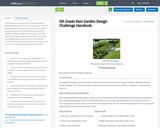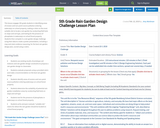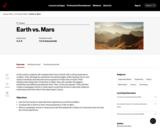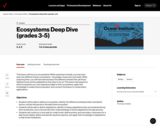
These handouts accompany the 5th Grade Rain Garden Design Challenge Lesson Plan. The handouts give criteria for identifying areas of erosion and non-point source pollution entering waterways on school property, slope and soil suitability criteria for situating the rain garden, and data collection procedures for phosphate testing. The handouts also include guidelines and criteria for the final poster presentation design and Claim-Evidence-Reasoning, as well as rubrics for scoring and guidelines for peer feedback.
- Subject:
- Earth and Space Science
- Education
- Elementary Education
- English Language Arts
- Environmental Literacy and Sustainability
- Environmental Science
- Geology
- Hydrology
- Life Science
- Mathematics
- Measurement and Data
- Physical Science
- Reading Informational Text
- Speaking and Listening
- Material Type:
- Activity/Lab
- Formative Assessment
- Interim/Summative Assessment
- Learning Task
- Lesson Plan
- Reference Material
- Rubric/Scoring Guide
- Unit of Study
- Date Added:
- 02/23/2019



